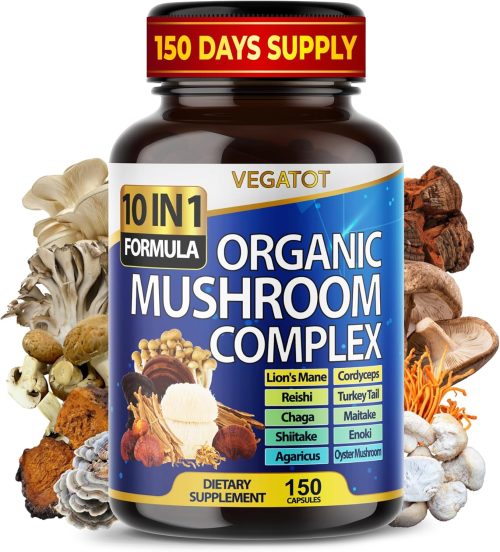
You might be surprised to learn about the significant impact omega-3 supplements can have on your heart health. These supplements go beyond just being beneficial; they play a crucial role in supporting your cardiovascular system. By addressing key factors like inflammation, blood pressure regulation, and cholesterol levels, omega-3s provide comprehensive support for your heart. But there’s more to this story than meets the eye. Understanding the mechanisms behind how omega-3 supplements support heart health can truly shed light on their importance.
Omega-3 Fatty Acids and Inflammation
Omega-3 fatty acids help reduce inflammation in the body, supporting overall heart health. By incorporating omega-3 supplements into your daily routine, you can actively combat inflammation, a key player in heart disease. These essential fatty acids work to decrease the production of inflammatory molecules, promoting a healthier cardiovascular system. Research suggests that omega-3s can help lower levels of C-reactive protein, a marker for inflammation linked to heart issues. Furthermore, omega-3s have been shown to reduce the secretion of certain cytokines that can trigger inflammation in the body.
Inflammation can lead to the development of atherosclerosis, a condition where plaque builds up in your arteries, increasing the risk of heart attacks and strokes. By harnessing the anti-inflammatory properties of omega-3 fatty acids, you’re taking proactive steps to protect your heart. Incorporating sources of omega-3s, such as fish oil or flaxseed, can be a beneficial addition to your heart-healthy lifestyle.
Effects on Blood Pressure Regulation
Lowering your blood pressure can be positively influenced by incorporating omega-3 supplements into your daily routine. Omega-3 fatty acids, found in fish oil supplements, have been shown to help regulate blood pressure levels. Research suggests that omega-3 fatty acids can lower blood pressure in individuals with hypertension or high blood pressure. These supplements work by relaxing blood vessels, improving blood flow, and reducing inflammation in the body, all of which contribute to healthier blood pressure levels.
Eicosapentaenoic acid (EPA) and docosahexaenoic acid (DHA) are two main types of omega-3 fatty acids that play key roles in blood pressure regulation. EPA and DHA help dilate blood vessels, making it easier for blood to flow through them and reducing the strain on the heart. By incorporating omega-3 supplements into your diet, you may experience modest reductions in both systolic and diastolic blood pressure readings.
Consult with your healthcare provider to determine the appropriate dosage of omega-3 supplements to support your heart health and blood pressure regulation.
Impact on Cholesterol Levels
Improving your blood pressure levels through omega-3 supplements can also positively impact your cholesterol levels. Omega-3 fatty acids, found in fish oil supplements, have been shown to reduce levels of triglycerides in the blood. High levels of triglycerides are linked to an increased risk of heart disease. By taking omega-3 supplements, you can help lower your triglyceride levels, which in turn can improve your overall cholesterol profile.
Additionally, omega-3 supplements have been found to raise levels of HDL cholesterol, often referred to as the ‘good’ cholesterol. High levels of HDL cholesterol are beneficial as they help remove LDL cholesterol, the ‘bad’ cholesterol, from the bloodstream. This process can help prevent the buildup of plaque in your arteries, reducing the risk of heart disease and stroke.
Incorporating omega-3 supplements into your daily routine can be a simple yet effective way to support your heart health by positively influencing your cholesterol levels.
Mechanisms for Cardiovascular Support
Enhancing heart function can be achieved through the support of specific mechanisms with the intake of omega-3 supplements. Omega-3 fatty acids, particularly EPA and DHA, play a crucial role in cardiovascular health by reducing inflammation throughout the body. These fatty acids help lower triglyceride levels, which are fats in the blood that can increase the risk of heart disease. Additionally, omega-3s help maintain the flexibility and integrity of cell membranes, including those of the heart. This flexibility is essential for proper heart function, as it affects the ability of cells to communicate with each other and maintain a regular heartbeat.
Omega-3 supplements also support cardiovascular health by reducing the risk of arrhythmias, or irregular heartbeats, which can be dangerous if left untreated. By helping to regulate the electrical activity of the heart, omega-3 fatty acids promote a steady and healthy heartbeat. Furthermore, these supplements can help lower blood pressure, another crucial factor in maintaining heart health. Overall, the mechanisms through which omega-3 supplements support cardiovascular health are essential for reducing the risk of heart disease and maintaining optimal heart function.
Trending Products














